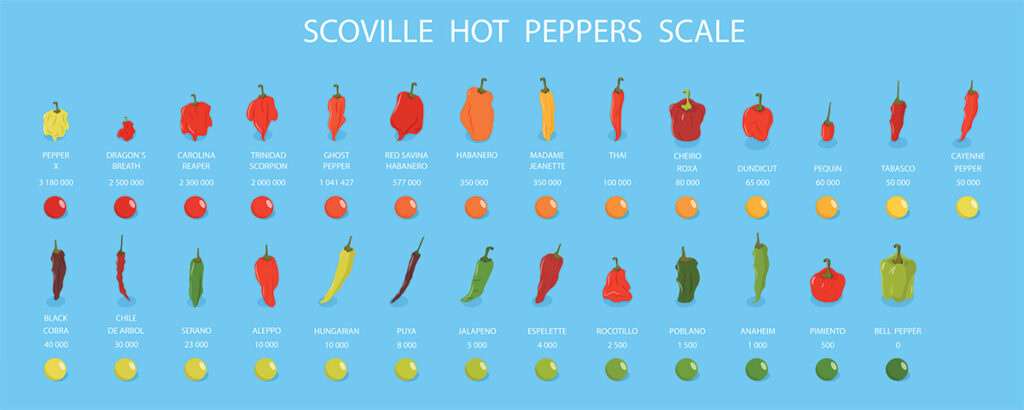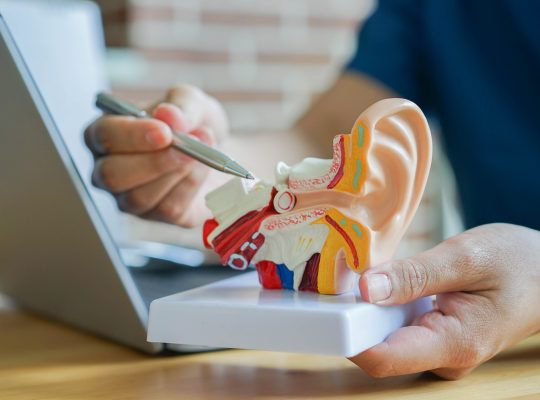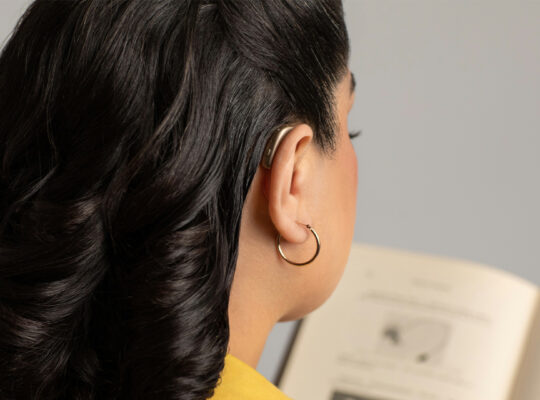There are a lot of persistent myths about what is and isn’t bad for your hearing. We now know that prolonged exposure to loud noises, certain medications or infections can affect how well we hear. But what about spicy foods? You know: that curry that makes you sweat, the sambal that brings tears to your eyes or that chili pepper that turns your tongue into a sea of fire. Could that damage your hearing? Or is that a fable that mostly belongs in the “if you eat carrots, you’ll see better” line?
In this blog, we dive deeper into the spicy story behind … spicy food. What exactly does it do to your body? Does it affect your ears? And are there situations where it does affect your hearing?
What spicy food actually does to your body
To understand whether spicy food can affect your hearing, we must first look at exactly what happens in your body when you eat something spicy. The “burning” feeling you experience is not because your mouth is literally on fire – although it sometimes feels that way. The culprit is a substance called capsaicin, which is found in chili peppers and excites your nerve receptors.
Those receptors – called TRPV1 receptors – are located in your mouth and throat and are actually meant to detect heat. Capsaicin, however, fools them: your brain thinks your tongue is on fire, when in fact nothing is happening. This causes the intense burning sensation, sweating, watering of your eyes and sometimes even a runny nose.
It is important to note that these reactions occur primarily in your mouth, throat and digestive system. Your ears are usually left out of this. But there are a few indirect ways in which spicy foods can indeed affect your hearing.
The Scoville scale: measuring how spicy something really is
When we talk about spicy food, we can’t ignore the Scoville scale. This scale, devised by American chemist Wilbur Scoville in 1912, measures how “hot” a pepper is based on the amount of capsaicin it contains – the substance that makes your nerves think your tongue is on fire. The higher the Scoville Heat Units (SHU), the spicier the pepper. By comparison, a regular bell bell pepper has 0 SHU, a jalapeño is between 2,500 and 8,000 SHU, and a habanero can reach as high as 350,000 SHU. The infamous Carolina Reaper – currently one of the hottest peppers in the world – even ticks over 2 million SHU. That explains why some dishes make you sweat like you just ran a marathon. So the Scoville scale is a handy way to understand how much capsaicin you are ingesting as well as why your ears sometimes seem to ring after a big bite of sambal.

Spicy food and your ears: indirect effects
Although spicy food does not directly damage your ears, it can have a few side effects that temporarily affect your ears. Here are the most important ones:
1. Clogged Eustachian tube due to mucus formation
Spicy food causes mucus production to start up in many people. You start sniffling, your nose runs and sometimes you even notice that your ears start to “plug up” a bit. This is because the
The result: a temporary “numb” feeling, as if you were on a plane that just took off. Fortunately, this effect usually disappears on its own within a few hours.
2. Spicy food and blood pressure
Capsaicin has a vasodilatory effect: it causes your blood vessels to temporarily dilate slightly, which can affect your blood pressure. This in itself is not dangerous, but in people with pre-existing circulatory problems or high blood pressure, this effect can sometimes be stronger.
Why is that important for your hearing? Because your inner ear is extremely sensitive to changes in blood flow. Healthy blood circulation is essential for a properly functioning hearing organ. So in rare cases, a sharp rise or fall in blood pressure caused by extremely spicy food could affect how well you hear – although that’s rare.
3. Allergic reactions or swelling
In some people, spicy food can cause an allergic reaction, especially with certain spices or exotic ingredients. In rare cases, it can also affect the mucous membranes around your ear canal, which in turn can lead to temporarily impaired hearing.
Again: this is rare, but it’s good to know that ear problems can sometimes be a side effect of a broader response from your body.
Spicy food for ear problems: to do or not to do?
If your ears are already bothering you – for example, an ear infection, tube of Eustachian tube problems or hearing loss – you may be wondering if you should hold off on that extra spicy sambal. Generally speaking, there’s no need. Spicy food usually does not aggravate such symptoms.
Still, there are a few exceptions:
- With middle ear infections or colds: If your mucous membranes are already swollen, spicy food can cause them to swell a little more. As a result, you may temporarily experience a pressing sensation or even hear a little less.
- For tinnitus (tinnitus): Some people with tinnitus find that their symptoms are temporarily worsened by spicy food, possibly due to a change in blood pressure. This varies greatly from person to person.
- For stomach or intestinal problems: Spicy food can cause a stress reaction in your body, which in some people indirectly affects their hearing perception – for example, through increased heart rate or blood pressure.
The most important piece of advice: listen to your body. If you find that spicy food is affecting your hearing or ears, it’s not a bad idea to downshift in terms of spiciness.
The benefits of spicy food (also for your ears!)
So far, we have mostly talked about possible negative effects, but spicy food also has positive properties that can indirectly benefit your hearing.
- Better circulation: Capsaicin stimulates blood circulation. And as mentioned earlier, a well-ventilated inner ear benefits from adequate oxygen and nutrients.
- Reduced inflammation: Capsaicin has anti-inflammatory properties. Chronic inflammation is one of the causes of hearing problems, so this may actually be protective in the long run.
- Boost your immune system: Spicy food slightly raises your body temperature, which activates your immune system. A strong immune system can help prevent infections that cause hearing damage.
Pithiness and hearing: a fascinating relationship
There is another interesting phenomenon worth mentioning: “referred sensation.” Some people experience a tingling or even painful sensation in their ears when eating extremely spicy foods. This is not because the food damages their hearing, but because the nerves in your throat and ears are connected.
It’s a bit like feeling “earache” with a sore throat. This is because the trigeminal nerve, which transmits signals from your face and mouth, can also send a stimulus to your ear. So it sounds crazy, but your ears sometimes react along with the heat in your mouth – a wonderful example of how everything in your body is connected.
Spicy food won’t damage your hearing – but be careful
Let’s recap: no, spicy food does not directly damage your hearing. It does not destroy your eardrum and it does not damage your hair cells in the cochlea.
However, spicy food can indirectly affect how you hear. Think mucus formation, changes in blood pressure or rare allergic reactions. In most cases, these effects are temporary and disappear on their own once your body is back in balance.
In fact, a little spice can even be good for your health – and thus for your ears. As long as you listen to your body and don’t overdo it (read: don’t turn your mouth into a chili hell), there’s no reason to worry that your hearing will suffer.
So yes, feel free to go wild with sambal, chili flakes or that infamous bowl of Carolina Reaper sauce. Your ears won’t hate you – though you may have to swallow (or drink water) for a while before you can hear that.
And should you still feel “deaf” after a spicy meal: give your Eustachian tube a little time. Usually, within a few hours, everything is back to how it was.
In short: spicy food and hearing? A fiery combination, but not a dangerous one.
Bonus: Jenna Ortega at Hot Ones
Hot Ones is a popular YouTube series where celebrities eat increasingly spicy chicken wings during an interview. The list of celebs who have already participated is endless and some handle it more easily than others (not surprisingly, the last one is reportedly around 1.5 million SHU) but this edition with Jenna Ortega (known from Wednesday, among others) I didn’t want to keep from you.









You must be logged in to post a comment.